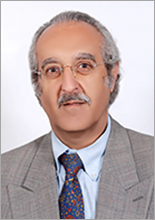Financial Development in Arab Countries
A significant trove of literature supports the view that financial development is instrumental in supporting economic growth and poverty reduction (Levine 2004). Deep and inclusive financial sectors facilitate the creation of new firms, provide poorer households an opportunity to climb out of poverty, reduce income inequality and permit more effective risk management (World Bank 2008).[1]
For Arab countries, financial development is uneven across the four major dimensions characterizing financial institutions and markets—depth, access, efficiency, and stability. In general, Arab countries rank in line with middle-income countries in terms of the financial sector’s depth and even approach high-income countries in terms of efficiency as captured by the net interest margins. Similarly, Arab countries rank favorably in terms of the stability of financial institutions, albeit with some concern in terms of asset price volatility. However, Arab countries still lag behind even lower-middle-income countries in terms of financial market access.
Since the early 2000s, several Arab countries have made bold moves to improve their financial development as well as adopt evolving international standards. Egypt moved to strengthen the banking sector by privatizing one of its four largest banks, consolidated specialized banks and rid banks of nonperforming loans. Saudi Arabia took strong regulatory measures to strengthen Basel II requirements and introduce risk-management and capital planning in the sector and increased compliance with most international standards. Finally, Morocco has taken steps to strengthen its financial system’s profitability and robustness through new standardized Basel II approaches to credit risk, increased capital market supervision and insurance sector compliance with International Association of Insurance Supervisors principles.
However, challenges remain in the region across all four dimensions of financial development. As before the reforms, financial access remains a challenge. While Gulf Cooperation Council (GCC) countries provide relatively good access to financial services, countries such as Egypt lag as only 9.7% of adults currently use bank accounts. Arab countries are also trying to increase access to credit, especially for micro, small and medium enterprises.
While financial sector depth appears to have improved, there remain challenges in the depth of the life insurance sector where Arab countries fall well below comparator countries such as Malaysia with life insurance premiums at 2.9% of GDP in 2011.
In terms of efficiency, net interest margins appear comfortable across the region. However, the ratio of turnover to capitalization in stock markets appears healthiest in Saudi Arabia and, to some degree, in Egypt. This measure points to the weak efficiency of the stock markets of other countries, reflecting on liquidity and price discovery.
Despite challenges to access, banking reforms appear to have borne fruit. Cleaning of bank portfolios, banking legislation reform, consolidation and privatizations have resulted in greater banking stability. Banks seem to be resilient, with healthy cushions relative to the volatility of returns on assets.
A discussion of recent financial development in Arab countries would not be complete without a word on the advance of Islamic finance. (Ernst and Young 2012) Islamic financial assets represented 14 percent of the Middle East and North Africa (MENA) banking market, and more than 26 percent of the GCC banking market in 2010 and grown further since then. This growth has prompted Arab countries to enhance the quality of regulation and supervision bearing on Islamic financial development, with Bahrain leading the way through the creation of a rulebook devoted solely to Islamic activities.
While financial access remains inconsistent across the Arab world, recent concerted efforts at reforms and gradual adoption of international standards have not only improved the health of financial institutions and infrastructure, but introduced needed regulations to govern the rapidly growing Islamic finance sector.
References
- Ernst & Young. 2012. “World Islamic Banking Competitiveness Report 2013.” Ernst and Young, December. http://www.ey.com/EM/en/Issues/Issues---Middle-East-Issues---Perspectives.
- Levine. 2004. http://www.nber.org/papers/w10766.
- World Bank. 2008. “Finance for All – Policies and Pitfalls.” World Bank, Washington, DC.
[1] There are analyses that put the causality the other way from economic development to financial development, while others state only the correlation between them. At any rate they definitely go hand in hand and are mutually reinforcing.
Wafik Grais is an International Senior Adviser specializing in Islamic finance, financial regulation, investment financing, private equity management, and corporate governance with expertise in SMEs and green growth financing. He was co-founder and chairman of Viveris Mashrek, a Cairo-based, financial advisory services company specialized in private equity investments in SMEs, licensed by Egypt's Financial Supervisory Authority. He spent 28 years in international finance notably with the World Bank in Washington DC where he held several senior positions both in operations and at corporate levels. He holds a Ph.D. in Economics.
